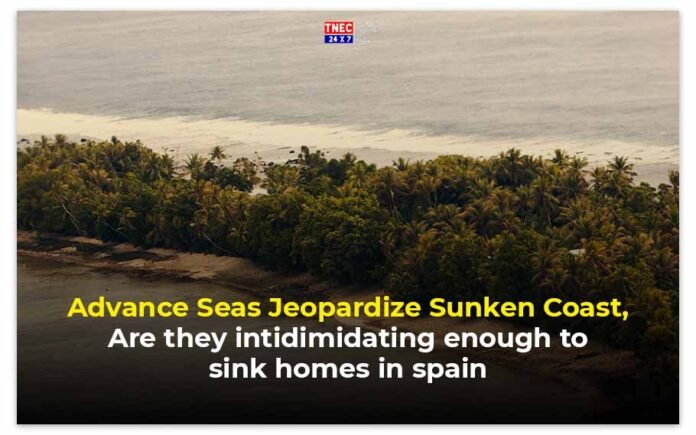What happened in Northeastern Spain?
In Northeastern Spain, the rising seas have been terrifying to inundate the ground-level shores and the government has aimed to buy 2,055 acres of private land in the Ebro Delta and this would be Europe’s substantial climate-related acquisition so far. Winds gusted to 30 to 40 mph in the immediate area and around 50 mph near the Bay Friday morning but have since waned. The gusty winds and rain resulted in dozens of downed trees in the region.
How is the terror intensifying for the people of the country?
The terror has intensified over the last few years seeing the Mediterranean has imposed itself on top of the land bought in 1951 in the Ebro River Delta, a 320-square-km (124-square-mile) UNESCO Biosphere Reserve rich in wetland wildlife such as flamingos. When a storm hits a village in Northeastern Spain, people rush to the coast, day or night, to check on their restaurant and rice fields, have cold feet that the sea might swallow their eateries and paddy fields.
What has Reuters conveyed regarding the Protection Plan?
According to a preceding protection plan is expected to be finalized before December, such purchases would expand a publicly-owned buffer; by up to 560 meters inland along the coast where nature would take its course.
As per the reports obtained by Reuters, the Environment Ministry told that it had received 252 public comments about its plan and would take as many as possible into account and it could be accepted by order, circumventing parliamentary debate.
How has the plan benefited the farmers?
The plan has given rise to strong resistance from officials and farmers in the Ebro Delta where 62,000 people live and gainful rice fields account for 65% of the area, illustrating how governments are starting to face tough choices as they try to adapt to increasing environmental risks.
How is Taula de Consens association assisting the local municipalities?
The Taula de Consens association representing local municipalities and businesses conveys the proposal amounts to capitulation and is gathering signatures for the European Ombudsman to investigate what it calls authorities’ inaction wherein some areas of the delta form part of the EU’s environmentally protected network Natura 2000. European Commission officials said they were not aware of Spain’s plan. The Taula wants six million cubic meters of sand brought in to guarantee the beaches’ survival for 50 years at a cost of about 30 million euros ($35 million), said its technical director, Rafa Sanchez, who praised the Netherlands’ use of sand for staving off the rising seas.
What is National Oceanic and Atmospheric Administration indicating?
As per the 2018 NOAA report, Incidents of unusually high water levels have been increasing in the Mid-Atlantic region because of sea-level rise associated with climate change. Between 2000 and 2015, the incidence of high-tide flooding has magnified from an average of three days per year to six. Such days are projected to proliferate in the coming decades as the climate continues to warm.












